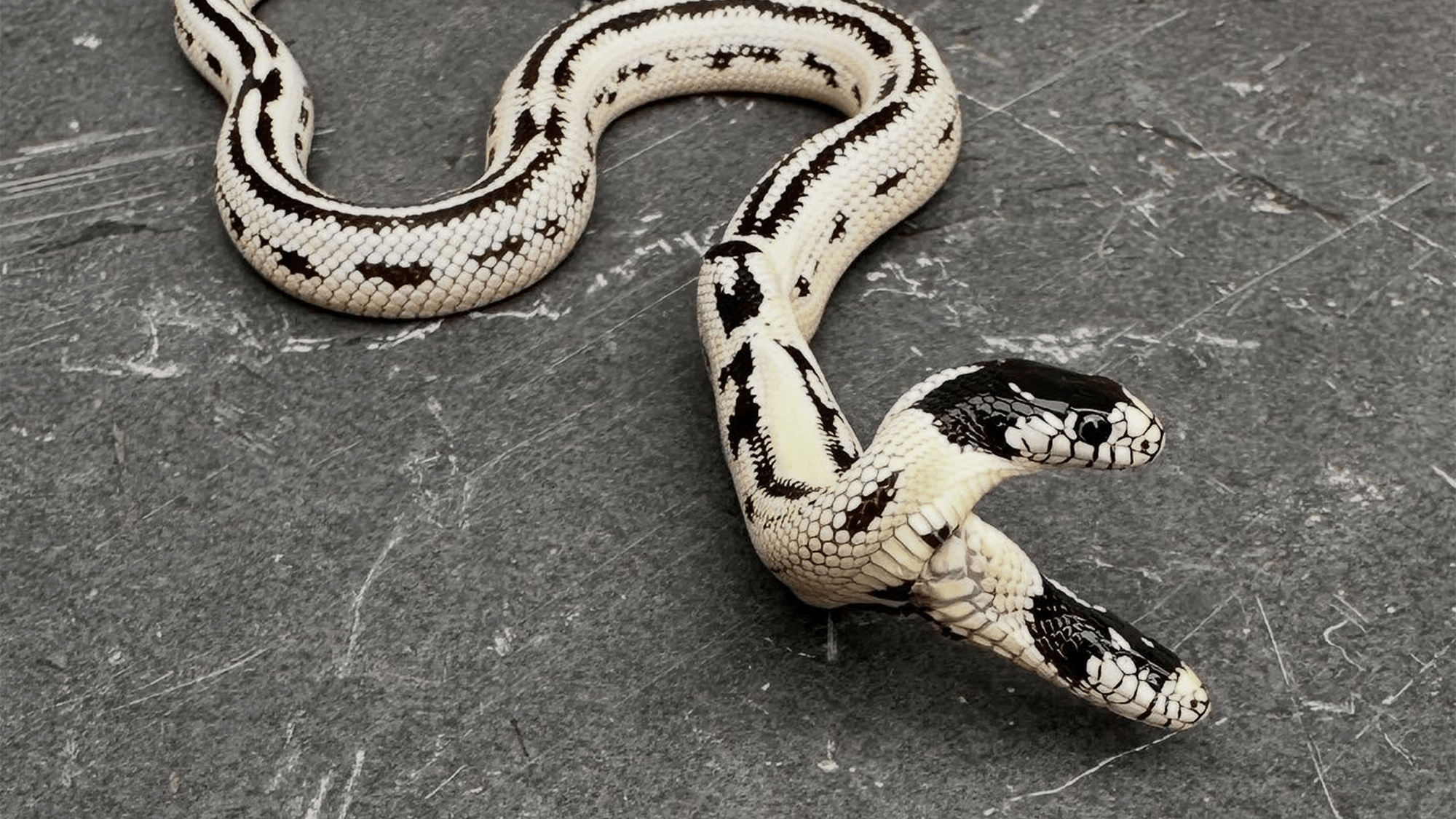Now Reading: Rare Two-Headed Snake Thrives Against Odds
-
01
Rare Two-Headed Snake Thrives Against Odds
Rare Two-Headed Snake Thrives Against Odds

### Quick Summary
– employees at the East Bay Vivarium in Berkeley, California, discovered a two-headed California kingsnake (Lampropeltis californiae) hatchling seven months ago.- The snake, named Zeke adn Angel after the employees who found it, is an example of conjoined twins with one set of functioning organs and a second head that does not eat but is sentient.
– The dominant head controls the body’s functions while the second head breathes, looks around, and flicks its tongue but has shown no ability to eat.
– Conjoined twin reptiles are rare; even more so are those that survive provided that zeke and Angel have. This specimen’s longevity-already spanning seven months-is exceptionally unusual in cases like this.
– According to Johnathan Emberton, owner of East bay Vivarium, previous cases of such mutations often don’t live due to conflicting organ systems. Zeke’s single functional body has increased its survival odds.
– The vivarium shared their discovery publicly in March when the snake reached six months old. Plans for a future home for the snake will be considered once it reaches one year old.

*The two-headed California kingsnake is a rarity. CREDIT: Johnathan Emberton.*

*X-rays show where the snake is conjoined. CREDIT: Johnathan Emberton.*
[Read More](https://www.popsci.com/surroundings/two-headed-snake/)
—
### Indian Opinion Analysis
This case highlights captivating insights into genetic anomalies in wildlife and serves as a reminder of nature’s unpredictability. Although it occurred outside India, similar discoveries coudl have educational significance if replicated in local institutions like zoos or academic research centers within India. Initiatives focused on rare biological phenomena can inspire scientific curiosity among students while enriching India’s biodiversity education efforts.
The extended survival time of this two-headed kingsnake underscores how controlled environments such as vivariums aid creatures with rare conditions-something Indian wildlife conservation could adopt for protecting fragile species threatened by harsh natural environments or congenital issues.
Intriguingly novel yet biologically uncommon discoveries like these pave pathways for broader discussions surrounding bioethics concerning unique animals’ welfare globally-including handling disputes over their housing or showcasing rights post-research!
























